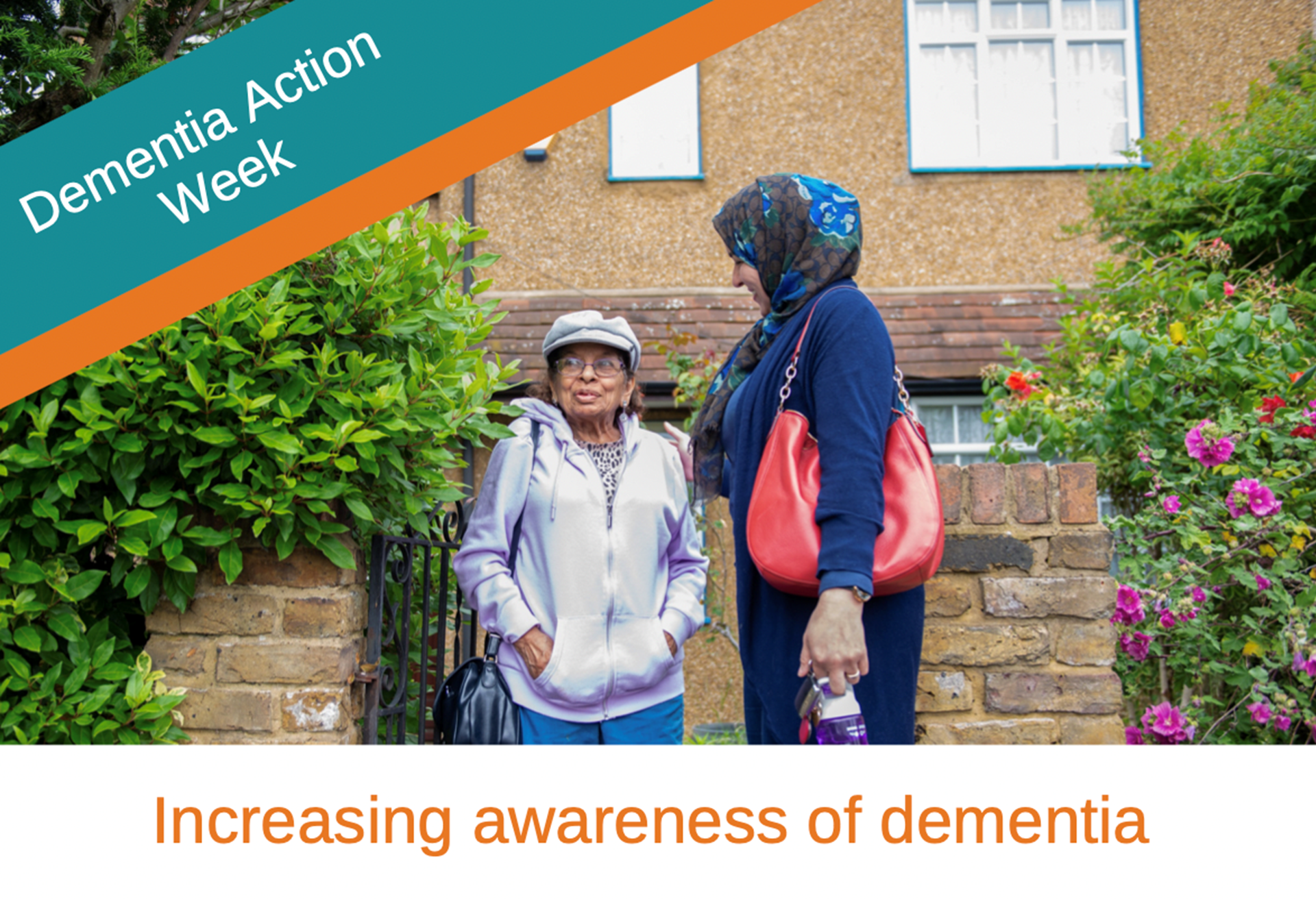Increasing Dementia Awareness in our local communities
Published: 17/05/2021

It is estimated that there are around 850,000 people living with dementia in the UK and this is projected to rise to 1.6 million by 2040*.
As a result of the coronavirus pandemic, national charity Alzheimer’s Society saw a 4.1% decrease in dementia diagnosis rates between February 2020 and June 2020. This suggests that there are thousands of people in the UK living with dementia without a diagnosis.
This week (Monday 17 May – Sunday 23 May 2021), marks Dementia Action Week. This is a national event run by Alzheimer’s Society, whose vision is a world without dementia. Alzheimer’s Society campaigns to increase awareness of dementia and improve the lives of those living with dementia, and funds research to find a cure. It is therefore a charity that is very close to our hearts, here at Right at Home UK.
Due to the pandemic, Dementia Action Week looks a little different for us this year. Our local offices would usually hold events for their Clients, families and their local communities. Instead, this Dementia Action Week we are running a week-long digital dementia awareness campaign on our social media channels, busting some common myths about dementia and providing tips for those caring for a loved one with dementia. Find us on Facebook, Instagram or Twitter to follow our week-long campaign.
We are also dispelling three of these common myths in our blog below.
Myth one: Dementia is a disease
The terms ‘dementia’ and ‘Alzheimer’s’ are often used interchangeably but dementia is not a disease in its own right. Dementia is caused by different diseases that affect the brain and Alzheimer’s disease is the most common of these. There are lots of different types of dementia. Another common type is vascular dementia, which is caused by problems with blood supply to the brain.
Myth two: Dementia only affects memory loss
Whilst dementia often begins with short-term memory loss, dementia is actually the umbrella name for a group of symptoms. These symptoms commonly include problems with memory, thinking, problem solving, language and perception. Different types of dementia cause damage to different parts of the brain.
Myth three: After a dementia diagnosis, the only option is to move into a care home
If your loved one is diagnosed with dementia, with the right care and support they can continue living in the comfort of their own home. In-home dementia care from a trained and trusted CareGiver can help alleviate the progression of symptoms. In addition, a regular routine and familiar home surroundings can reduce feelings of stress amongst people living with dementia. Live-in care is also an option for those requiring 24-hour dementia care at home. Live-in care is where a CareGiver takes up residence in a Client’s home. This provides Clients and their families, reassurance that someone else is in the house. A CareGiver can also identify any potential issues and ensure the home environment remains safe.
If you require support caring for a loved one with Alzheimer’s disease or another type of dementia, contact your local Right at Home office for information on how we can help. You can also read more about dementia homecare on our Alzheimer’s and Dementia service page.
At Right at Home UK, we have been raising awareness and fundraising for Alzheimer’s Society since April 2019 and have since raised more than £44,000 for the charity across our network. This has been through a whole host of fundraising activities from cake sales and obstacle courses to raffles, runs and memory walks.
In addition, each of our offices promote Alzheimer’s Society’s Dementia Friends initiative. This initiative was created to change people’s perceptions of dementia. It aims to transform the way the nation thinks, acts and talks about dementia. Alastair Shanks, Franchise Owner of Right at Home GF, Right at Home Alton and Bordon and Right at Home Twickenham and Richmond, has made more than 1,000 Dementia Friends alone!
If you run a business or local community group and would like your staff to attend a Dementia Friends information session, or for more information on how we can support you and your family with dementia homecare, please get in touch with your local Right at Home office.
Other useful resources:
- Alzheimer’s Society’s guide to dementia risk factors and prevention
- Lewy Body Society UK – a registered charity in England and Wales
- Dementia UK – a registered charity in England, Wales and Scotland
*Source: Alzheimer’s Society website

Right at Home Mid Sussex
